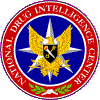
|
National
Drug Intelligence Center Philadelphia/Camden High Intensity Drug Trafficking Area Drug Market Analysis June 2007 Illicit FinanceDrug traffickers in the PC HIDTA region launder illicit funds generated by drug sales through a variety of methods, including smuggling bulk cash, conducting electronic wire transfers, structuring bank deposits and money order purchases below reporting requirements, commingling drug proceeds with funds generated through legitimate businesses, purchasing real estate and vehicles, operating front businesses, and using smart cards, automated teller machines, and prepaid stored value cards. However, law enforcement reporting indicates a decrease in the use of traditional financial institutions by traffickers to launder illicit drug proceeds because the traffickers have become aware that banking officials are readily identifying illicit financial activity by filing Currency Transaction Reports (CTRs) and Suspicious Activity Reports (SARs). Colombian, Dominican, and Mexican DTOs and criminal groups transport drug proceeds primarily in bulk from the PC HIDTA region to New York City, the Southwest Border area, Mexico, or other drug source locations. Bulk quantities of cash are often concealed in hidden compartments of vehicles or in shipments of commodities such as furniture, car parts, electronics, or produce. These traffickers also use freight transportation companies and shipping containers to transport bulk currency. Colombian DTOs are increasingly using prepaid credit cards as a method of laundering drug proceeds in the HIDTA region. They use illicit funds to purchase prepaid credit cards in amounts up to $1,000. The cards are then redeemed in Colombia for pesos. Some of the DTOs consider this method to be preferable to the Black Market Peso Exchange (BMPE)1 because it allows for a higher rate of profit. Many DTOs in the HIDTA region, particularly Dominican and Asian organizations, transport drug proceeds to Atlantic City, New Jersey, where they launder the funds through casinos. Some DTOs are beginning to transport drug proceeds to casinos in Pennsylvania as well. These DTOs exchange large amounts of drug proceeds for chips, pass some time in the casino, and then exchange their chips for cash. They also use the wire transfer services of casinos to transfer funds to offshore bank accounts or to other casinos. Some traffickers in the region, particularly Asian DTOs and criminal groups, use cash-intensive front businesses, such as auto repair shops, beauty and nail salons, car washes, construction companies, tattoo parlors, and travel agencies, to launder illicit drug proceeds in the region. They also structure the purchase of money orders, which are then mailed to Canada and deposited in bank accounts to be transferred to source countries. These groups also use bank deposit structuring, bulk cash smuggling, and real estate fraud to move and conceal drug proceeds. Many retail-level drug dealers in the PC HIDTA region launder drug proceeds through the purchase of consumer goods, such as expensive jewelry and luxury vehicles, and through the purchase of real estate, including low-income HUD/Section-8 (U.S. Department of Housing and Urban Development) housing. End Note1. The Black Market Peso Exchange (BMPE) is a system in which Colombian traffickers receive Colombian pesos in Colombia in exchange for U.S. dollars located in the United States. Peso brokers facilitate this process by selling Colombian trafficker-owned U.S. dollars located in the United States at a discount to Colombian merchants, who use the funds to purchase U.S. goods. |